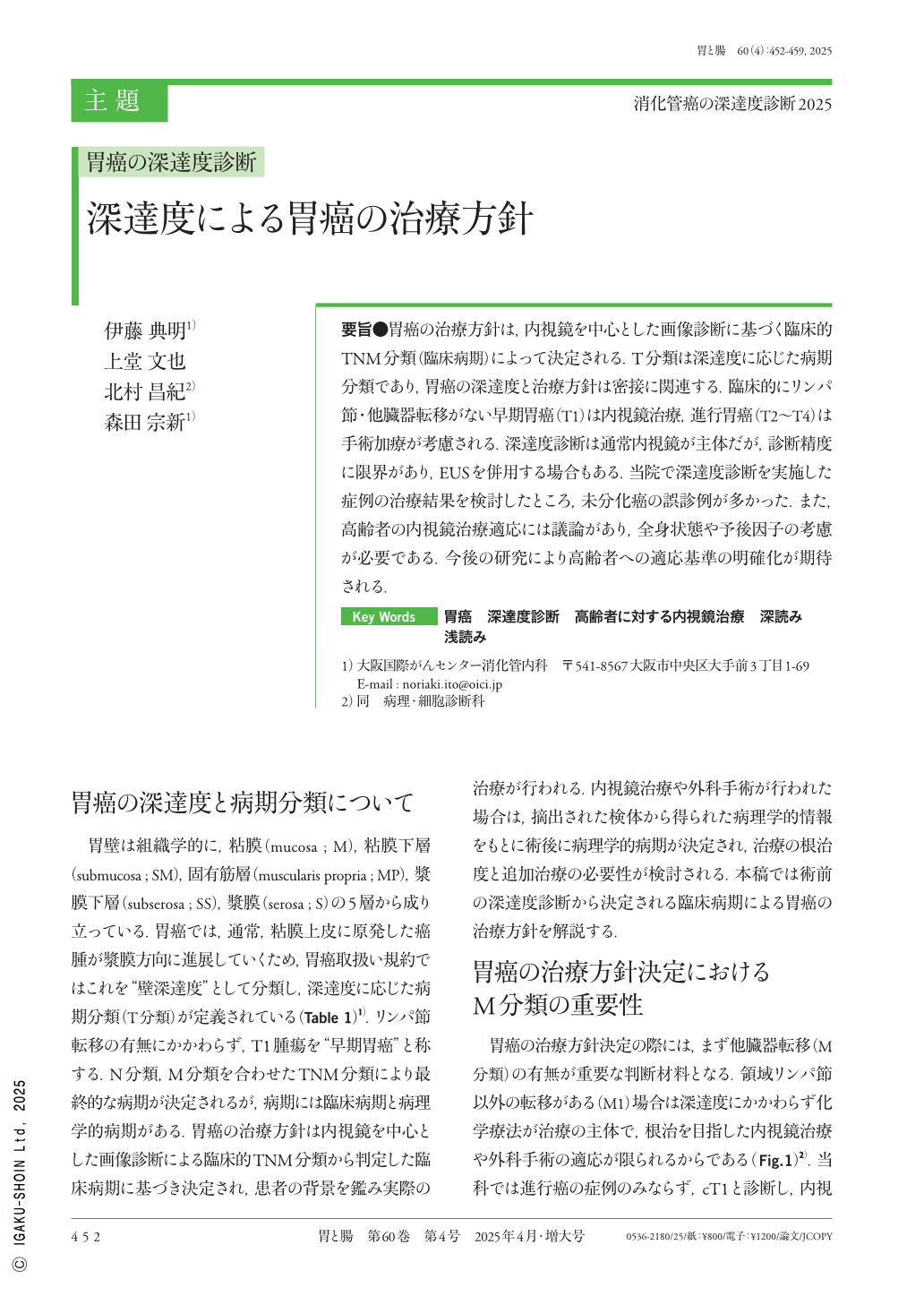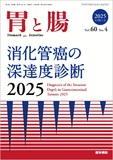Japanese
English
- 有料閲覧
- Abstract 文献概要
- 1ページ目 Look Inside
- 参考文献 Reference
要旨●胃癌の治療方針は,内視鏡を中心とした画像診断に基づく臨床的TNM分類(臨床病期)によって決定される.T分類は深達度に応じた病期分類であり,胃癌の深達度と治療方針は密接に関連する.臨床的にリンパ節・他臓器転移がない早期胃癌(T1)は内視鏡治療,進行胃癌(T2〜T4)は手術加療が考慮される.深達度診断は通常内視鏡が主体だが,診断精度に限界があり,EUSを併用する場合もある.当院で深達度診断を実施した症例の治療結果を検討したところ,未分化癌の誤診例が多かった.また,高齢者の内視鏡治療適応には議論があり,全身状態や予後因子の考慮が必要である.今後の研究により高齢者への適応基準の明確化が期待される.
The treatment strategy for gastric cancer is based on the clinical TNM classification(clinical stage), which is primarily derived from the endoscopy-centered imaging diagnosis. The T classification represents the staging based on the depth of invasion, which is closely related to the treatment strategy. Endoscopic treatment is considered for early gastric cancer(T1)without clinical lymph node or distant organ metastasis whereas advanced gastric cancer(T2-T4)is treated surgically. Although endoscopy is the primary method used for assessing the invasion depth, its diagnostic accuracy has some limitations, and therefore, endoscopy is sometimes used in conjunction with endoscopic ultrasonography(EUS). A review of treatment outcomes for cases in which depth diagnosis was performed at our institution revealed a high rate of misdiagnosis in undifferentiated carcinoma cases. Additionally, the indication for endoscopic treatment in elderly patients remains debatable, requiring consideration of the overall health status and prognostic factors. Future studies are warranted for further clarification of the eligibility criteria for elderly patients.

Copyright © 2025, Igaku-Shoin Ltd. All rights reserved.


